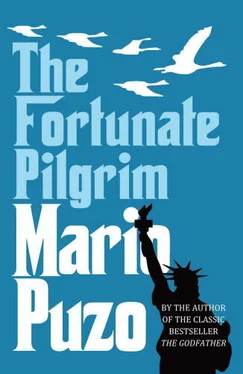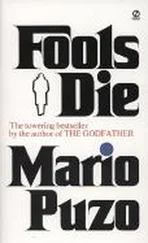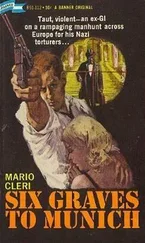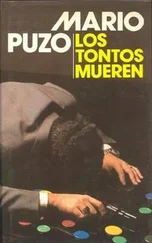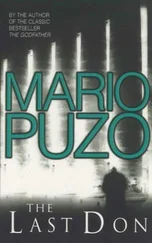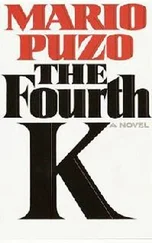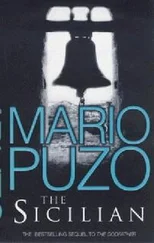Their heads wagged in agreement. But another woman—no stranger to misfortune, respected for her hard life—nodded a gray head and then said, True, true, and yet she has a grown daughter, a forelady—intelligent, married to a sober man. She has masculine children who would do credit to any mother. Lorenzo, married, giver of grandchildren, making his fortune in the bakery union; Gino, now a good dutiful boy, a head of the family that made you think of Italy with his hard work on the railroad and never in trouble with the police. Salvatore, who won medals in school and would surely be a professor. Lena, an Italian daughter of the old school, a worker in the home, ever obedient, ever dutiful. Look how they all respected Lucia Santa. The two married ones still gave money; Gino brought his pay envelope home unopened.
Five good children. True, no husband, but considering some husbands on Tenth Avenue, this might not be a real misfortune. At least Lucia Santa had now only a small family. Even poor Vincenzo, dead, had never brought disgrazia to his family. He had been ill and fallen beneath a railroad engine. It was an accident. And he had been buried in holy ground. Poor Vincenzo, born under an unlucky star, had met a destiny prepared for him at the beginning of time.
So the balance was struck. Many women had suffered as much or more. Husbands had been killed on the job, infants born misshapen, children had died from harmless colds, small injuries. There was not a woman in the circle who had not buried at least one child.
And look at those misfortunes Lucia Santa had escaped. Daughters pregnant without a husband in sight for miles around; sons who became jailbirds of the finest feather or found a way to rest their disobedient legs in the electric chair. Drunken, gambling, whoremastering husbands.
No, no. Lucia Santa had been fortunate to escape for so long a period of time that measure of sorrow due her station in life. All her children were strong, healthy, handsome, the world was before them. Soon she would reap the rewards of all her travail. So, courage. America was not Italy. In America you could escape your destiny. Sons grew tall and worked in an office with collars and ties, away from the wind and earth. Daughters learned to read and write, and wore shoes and silk stockings, instead of slaughtering the bloody pig and carrying wood on their backs to save the strength of valuable donkeys.
Had not misfortune entered once even into heaven? Who could escape sorrow? Who could pass through life without weeping? Only the dead do not suffer. Ah, the happy, happy dead. The old women clasped their hands to give thanksgiving for the day they would leave this earth, this unhappy vale of tears. Yes, yes, the happy dead who suffered no more.
Their eyes flashed fire; energy and power radiated from their black-clad, lumpy bodies. They devoured everything that happened on the Avenue as they spoke. They hurled curses like thunderbolts at children headed for mischief. They sucked greedily on ridged paper cups of chilling lemon ice and took great bites of smoking hot pizzas, dipping brown invincible teeth deep into the lava of hot tomato sauce and running rivers of cheese to the hidden yeasty dough. Ready to murder anyone who stood in the way of so much as a crust of bread for themselves or their children, implacable enemies of death. They were alive. The stones of the city, steel and glass, the blue-slate sidewalks, the cobblestoned streets, would all turn to dust and they would be alive.
CHAPTER 24

CAN A DEVIL turn into an angel? The Panettiere, the mad barber, Dr. Barbato, and even the cunning Zia Teresina Coccalitti marveled at the change in Gino Corbo. It was true: disaster made a boy into a man, for now Gino slaved like a peasant in the railroad, gobbling up overtime and bringing his envelope home unopened to his mother.
Lucia Santa was so pleased that she gave Gino twice the spending money she had given Vinnie, swearing to Octavia that it was only just because Vinnie had always stolen his overtime. “See,” the mother said to Octavia on her Friday night visits, “Gino was always a good boy.” And Octavia had to agree, because despite his working at night and even overtime on Sunday, Gino was finishing his last term of high school and would graduate in January. He was even making the honor roll for the first time. This especially delighted Lucia Santa. “Wasn’t I right?” she asked Octavia. “It is the playing in the street that tires a child’s brain, not honest work.”
Octavia, still shaken by Vinnie’s death, was amazed and puzzled at how quickly her mother seemed to recover. She was quieter, more permissive with Sal and Lena but otherwise the same. Only once did she betray emotion. One night, when they were talking of Vinnie as a little boy, Lucia Santa said with bitter self-reproach, “If I had left him with Filomena in Jersey, he would be alive.” Relinquishing one of her proudest memories, and yet she still lived each day with the eager trust of a believer in good fortune.
And why not? Never had the world treated the family of Angeluzzi-Corbo so well. Gino made a fortune in the railroad. Sal was brilliant in high school and would surely go to college. Lena was equally brilliant and would be a schoolteacher. Both worked now in the panetteria selling bread after school, earning good wages, which made Lucia Santa gloat with Octavia over the bank books on Friday nights. Lucia Santa could only control her dangerous optimism by reminding herself that in a few short months, right before Christmas, the Panettiere ’s son, Guido, would finish his year of Army service and take Sal and Lena’s place in the bakery. She could not count on this flood forever.
Even Octavia’s husband was working. Poor Norman Bergeron was miserable writing pamphlets for some Government agency—Civil Service, security, and good money. Octavia knew he was unhappy, but she thought it was just too bad about him. He could always write poetry when the people in Europe stopped killing each other and there was another Depression.
But best of all for Lucia Santa was Gino becoming a man, part of the real world. She would not have to quarrel with him anymore, she had almost forgiven him all the injuries he had made her suffer. He had even become more serious. Could it be that her struggles were at an end? Lucia Santa did not believe it for a moment, but she would never let it be said that she was one of those pitiful rags who refused to enjoy good fortune when it came.
Each night Gino went to work it was with the same feeling of unbelief. Ascending in the elevator of the freight building, then stepping into the circle of light with clattering billing machines, seemed just the beginning of a dream. But gradually he believed.
The railroad put him on the midnight-to-eight-in-the-morning shift, and during these hours the dusty office was spooky with filing cabinets, dead black typewriters, and the almost invisible wire mesh of the cashier’s cage. Surrounded by these Gino typed the night away. He was very good at the job—his athletic coordination and his sharp eyesight helped. The quota was 350 bills a night, and he easily surpassed it. Sometimes he had an hour free to read while he waited for new bills to come up from the loading platform.
He never talked to the men he worked with, or joined in their general conversation. The night boss gave him the toughest bills to do, but he never protested. It didn’t matter. He hated it so much that nothing mattered. He hated the building and the rat-smelling office. He hated the dirty metal touch of the typewriter keys. He hated walking into that yellow circle of light that held the six billers and the boss rate clerk.
Читать дальше
